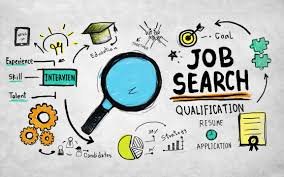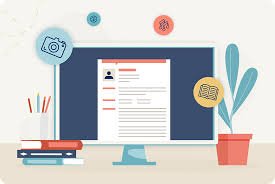
The Future of Work: Why Soft Skills Are Now Your Most Important Asset
Why Your Resume's Best Assets Aren't on the Page
Think about the last job posting you saw. It probably listed a handful of hard skills—things like proficiency in Python, experience with a CRM, or a specific industry certification. These technical abilities are the currency of the modern job market, and for good reason. They are tangible, measurable, and essential for the daily functions of most roles. But what if I told you that while these skills get you in the door, they aren't what truly defines your long-term success?
The real differentiator in today's fast-paced, highly collaborative workplace isn't what you know, but rather how you are. These are the skills that don’t fit neatly into a bullet point on a resume—the soft skills. They are the non-technical, personal attributes that dictate how you interact with colleagues, solve problems, and adapt to change. And in an era where automation is taking over routine tasks, these uniquely human capabilities are becoming more valuable than ever.
The Unseen Superpowers of the Modern Professional
Let's break down why these "soft" skills are actually the hardest to master and the most crucial to cultivate.
1. Communication: The Glue of All Collaboration
You might be a genius with a spreadsheet, but if you can't clearly explain your findings to a teammate, that brilliance is lost. Communication isn't just about speaking; it's about actively listening, asking the right questions, and tailoring your message to your audience. A project manager who can de-escalate a tense situation with a client or a team member who can provide constructive feedback without causing friction is an indispensable asset. Effective communication builds trust, prevents misunderstandings, and ensures everyone is rowing in the same direction.
2. Adaptability: Thriving in a World of Constant Change
The only constant in the modern workplace is change. New technologies emerge, market trends shift, and business priorities pivot on a dime. Employees who are rigid and resistant to change will quickly find themselves left behind. On the other hand, those with high adaptability embrace new challenges, learn new processes with enthusiasm, and see unexpected changes as opportunities, not roadblocks. This resilience isn't just a professional trait—it's a mindset that ensures your career remains future-proof.
3. Problem-Solving: Beyond the Technical Glitch
While a hard skill might help you troubleshoot a specific software bug, a soft skill will help you figure out why the bug occurred in the first place and how to prevent it from happening again. Problem-solving is about more than just finding a quick fix. It involves critical thinking, creativity, and the ability to approach complex challenges from multiple angles. It’s the ability to see a tangled knot of issues and calmly, logically, and collaboratively untangle them.
4. Emotional Intelligence: The Secret to Strong Teams
This is the big one. Emotional intelligence (EQ) is the ability to understand and manage your own emotions, and to recognize and influence the emotions of others. It’s the foundation for empathy, effective conflict resolution, and authentic leadership. A person with high EQ can read the room, understand a colleague’s frustrations, and motivate a team during a difficult project. In a world where mental health and workplace culture are rightly a top priority, EQ isn't just a perk—it's a necessity for creating a positive and productive environment.
The Bottom Line: Your Skills Are Only Half the Story
According to LinkedIn, a staggering 92% of talent professionals believe soft skills are just as, if not more, important than hard skills. The reason is simple: you can teach someone to use a new program, but it's much harder to teach them how to be a good teammate or a resilient leader.
Hard skills are your entry ticket. They prove you have the technical chops to handle the job. But soft skills are your all-access pass. They show you have the character, resilience, and collaborative spirit to thrive within a team and grow with a company. So, as you continue to build your resume and expand your technical expertise, don’t forget to invest in the skills that truly make you human. Because in the end, it’s not just about what you can do—it's about how you do it.
FAQs on Soft Skills
1. What's the biggest difference between hard and soft skills?
Hard skills are technical and quantifiable (like coding or accounting), while soft skills are personal and interpersonal (like communication and teamwork). Think of hard skills as "what you do" and soft skills as "how you do it."
2. Are soft skills really necessary for technical jobs?
Absolutely. Even in highly technical roles like software development or data science, you still need to communicate your work to others, collaborate with a team, and manage project timelines. Your technical skills might build the product, but your soft skills will ensure it gets to the finish line smoothly.
3. How can I get better at my soft skills?
It's all about practice and self-awareness. Seek out opportunities to work on group projects, volunteer to lead a meeting, or simply practice active listening in your daily conversations. You can also ask for feedback from colleagues and mentors to identify areas for improvement.
4. Can I list soft skills on my resume?
Yes, but don't just list them. Instead of writing "good communicator," provide a specific example of when you used that skill, like "Led a cross-functional team meeting to successfully align project goals." Show, don't just tell.
5. How do employers evaluate my soft skills?
During interviews, employers often ask behavioral questions like, "Tell me about a time you had to deal with a difficult client." Your answer will reveal your problem-solving, communication, and emotional intelligence skills. They are looking for concrete examples of how you've handled real-world situations.




